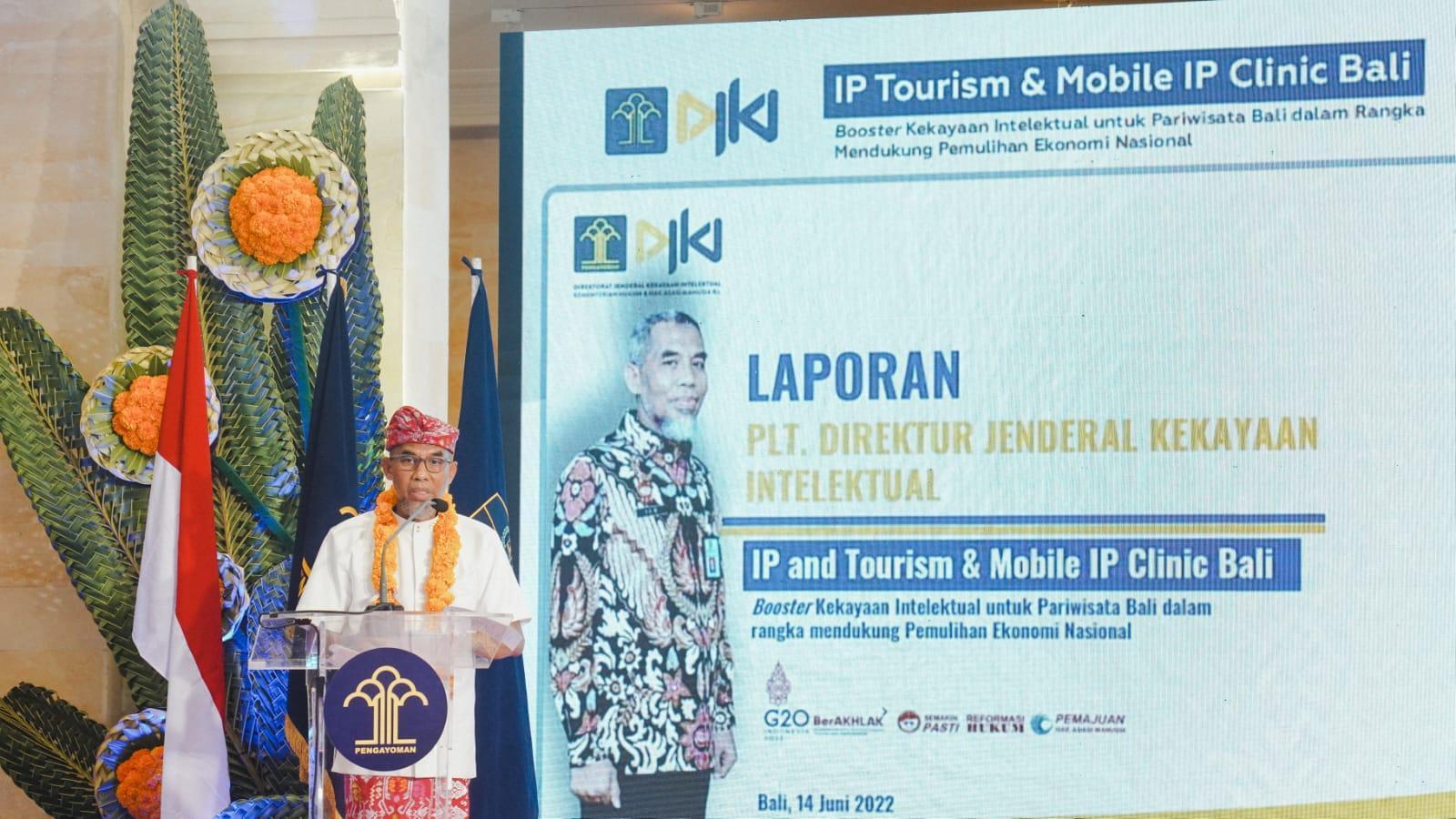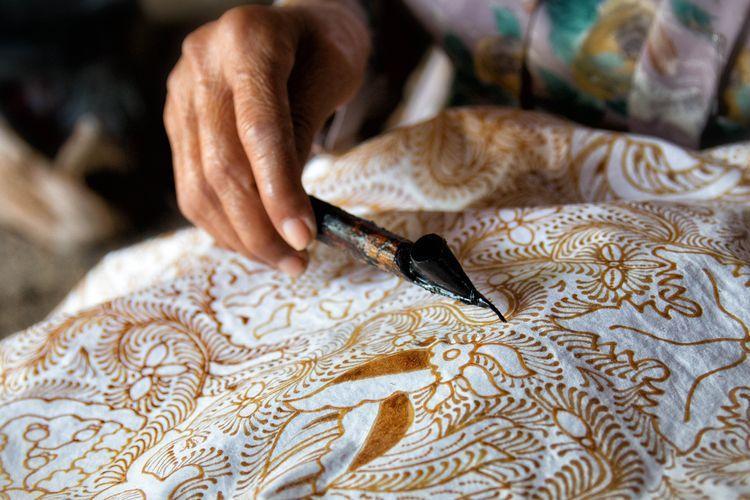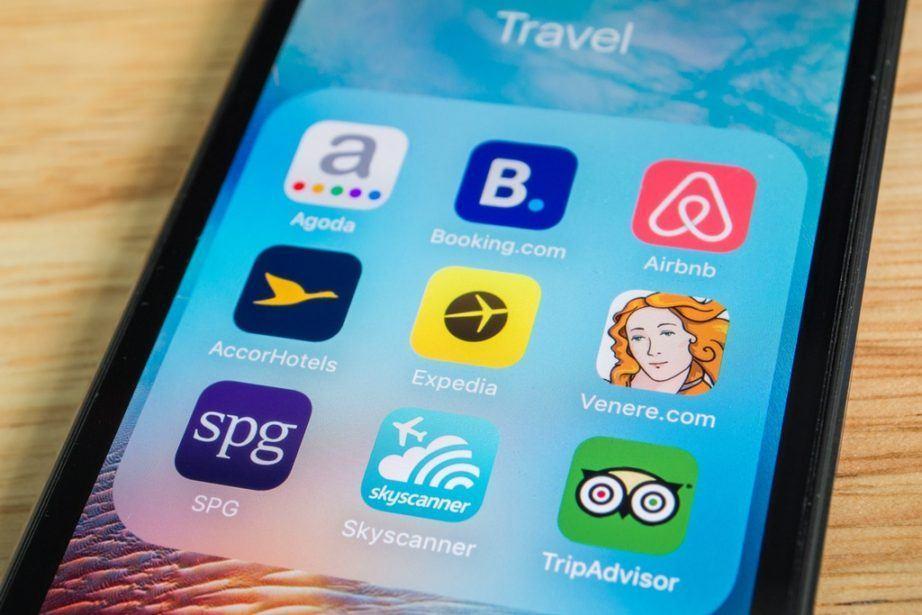Intellectual Property (IP) is so powerful and versatile that it could be of great use in a wide range of sectors, including tourism.
Last June, the Directorate General of Intellectual Property announced that Bali had been chosen as the pilot project for the “Intellectual Property Tourism” program. Razilu, the Acting Director General, has explained that this program is intended to build an “IP ecosystem” in the tourism sector, with the hopes that it could help the industry’s recovery process after considerable damage due to the pandemic.
The creation of the IP Tourism program is largely derived from the notion that actors in the tourism industry must understand the value of IP to maximize the economic potential of their efforts. Through the implementation of the program, they are expected to be able to apply IP in business strategies.
“Tourism is closely related to IP. By including IP in the development of tourism products, this surely could differentiate products and services in the market for branding tourist destinations, planning tourism policies, as well as implementing them,” explains Razilu.
Meanwhile, the choice of Bali as the pilot project is based on the province’s natural and cultural resources richness, potentially strong foundations for IP-based tourism. Furthermore, as means to support the program, there are also plans to implement mobile IP clinics, which could ease the spread of IP services to the public.
IP and Tourism
The pilot project for IP Tourism is meant to be the start of many provinces implementing IP-based tourism. Partners might wonder, what exactly is IP-based tourism? Or how exactly does IP support the tourism industry?
The tourism industry is heavily concerned with the creative economy; of course, the creative economy is nearly inseparable from IP. Strong knowledge of IP, could help tourism industry actors to protect and develop their products, as well as maximize their economic potential.
The following are summaries of how each category of IP could support the tourism industry:
- Trademarks
A distinctive trademark is crucial. Unique branding could not only be the deciding factor in attracting tourists to a particular tourism destination but could well be synonymous with the location itself. Take for example, this logo which is now so identical to New York:
The iconic “I Love NY” logo was created by Milton Glaser in 1977, and it has been imitated countless times since. But don’t be mistaken; this logo is not part of the public domain. It is owned by the New York State Department of Economic Development, and they hold the rights to licensing.
2. Geographical Indication
This is perhaps the discipline of IP most closely related to tourism. Article 1 Paragraph 6 of Law No. 20 Year 2016 defines geographical indication as any indication which identifies goods and/or a product as originating from a particular region in which its geographical environment factors, including nature, labor, or combination of both factors, are attributable to a given reputation, quality, and characteristics of the produced goods and/or product.
The nature of geographical indication is intrinsically linked with a particular location, thus making it a natural supporting tool for the tourism industry. Each province is rich in specific products that are uniquely their own. In Bali alone, Acting Director General Razilu has pointed out several of its notable geographical indications, namely the Arabika Kintamani Coffee, Gringsing Weaving, and the Amed Salt.

3. Copyright
Local art products can be the main attraction in a tourist destination. A strong grasp of copyright laws could help creators as a means of protection for their products from unauthorized use or reproduction, as well as a source of incentive to further develop and create said products.
The range of copyright protection is quite wide in that it covers many products commonly related to tourism, such as batik, dances, photographs, paintings, and even simpler things like pamphlets and much more.
4. Patents
As the discipline of the intellectual property mainly covers technology, Partners might assume that patents are irrelevant in the tourism industry. However, note how much technology has merged into everyday life, that it has now drastically influenced many sectors. Innovative technology, and by extension, patents, could also support the tourism industry. For example, tourists now rely on applications for various services such as buying tickets, accommodation, travel maps, and so on. As computer programs, apps can be eligible for patents.
Konklusi
The pandemic has had and continues to hurt the tourism industry significantly. Workers in these fields are trying hard to find ways to revive the traveling sector. Perhaps, intellectual property could be a powerful instrument that aids the process.
If Partners operate in the tourism industry and require consultations regarding IP, contact us right now via marketing@ambadar.co.id. We will provide the best services for you.
Sources:
- Tind.wipo.int
- Djip.go.id
- Baliprov.go.id
- Law No. 28 Year 2014 on Copyright
- Law No. 13 Year 2016 on Patents
- Law No. 20 Year 2016 on Trademark and Geographical Indications










